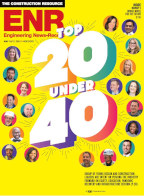The potential for slashing plan-review and approval time for “replicable” commercial buildings is increasing, thanks to the publication of a road map for code-compliance review. The guideline’s tenets, intended to streamline the approval process by bundling reviews of project prototypes and eliminating repetitive reviews, already have been applied successfully in Philadelphia.
The International Code Council’s ICC G1-2010 Guideline for Replicable Buildings, published on Sept. 15, is targeted at state and local building officials. But it also is meant for owners with many similar projects, such as retail, restaurant and hotel chains, and their architects, engineers and builders.
“A global review of replicable documents paired with a local review of unique jurisdictional requirements could be more cost-effective and bring greater consistency in the application of local regulations,” says the guide.
Replicable-building plan reviews have been used for houses for some time. “We’re trying to take that idea and expand it nationwide,” says Michael Fink, deputy commissioner for development in Philadelphia’s Dept. of Licenses and Inspections and a member of the guideline’s development committee. “I’m happy with the guideline,” he says, having used the approach.
Following the draft guideline, Philadelphia did a test run with Target Corp., Minneapolis, which is carrying out identical renovations on parts of its 1,700 stores, three of which are in Philadelphia. The review process, which typically would take 20 business days for each job, took only two days for all three.
The next step is getting states and localities to adopt the guideline. “We’ve got the guideline, but it’s nothing until local jurisdictions adopt it and use it,” says Robert C. Wible, a Reston, Va.-based consultant to state and local governments for streamlining code approvals and a member of the committee representing the non-profit industry consortium FIATECH. The group developed a document on which the guideline is based.
With an eye toward adoption and implementation, a seminar on the guideline will be held for attendees of ICC’s annual business meeting, scheduled for Oct. 24-27 in Charlotte, N.C.
The document defines “replicable buildings” as structures with construction plans reviewed and deemed code-compliant by a designated expert outside the supervision of the local official and accepted as substantially code-compliant by the governing authority adopting the guide. Once that is done, the structures may be built without a complete plan review in any jurisdiction adopting the guide. Plans and associated documents only are reviewed by the local authority for compliance with local amendments and conditions.
If plans are developed and reviewed by competent people, “risk is minimal,” says Fink.
The 11-page guide was developed by a 19-member committee comprising state and local building officials and representatives of owners, such as Target and Atlanta-based Home Depot and Arby’s Restaurant Group Inc.
Copies of the guide can be purchased for $29.95 ($23.95 for ICC members) at www.iccsafe.org. “This is true streamlining,” says Wible.




Post a comment to this article
Report Abusive Comment